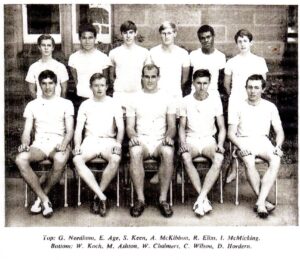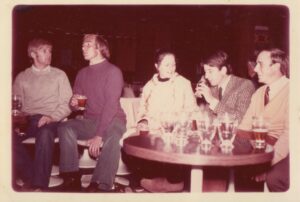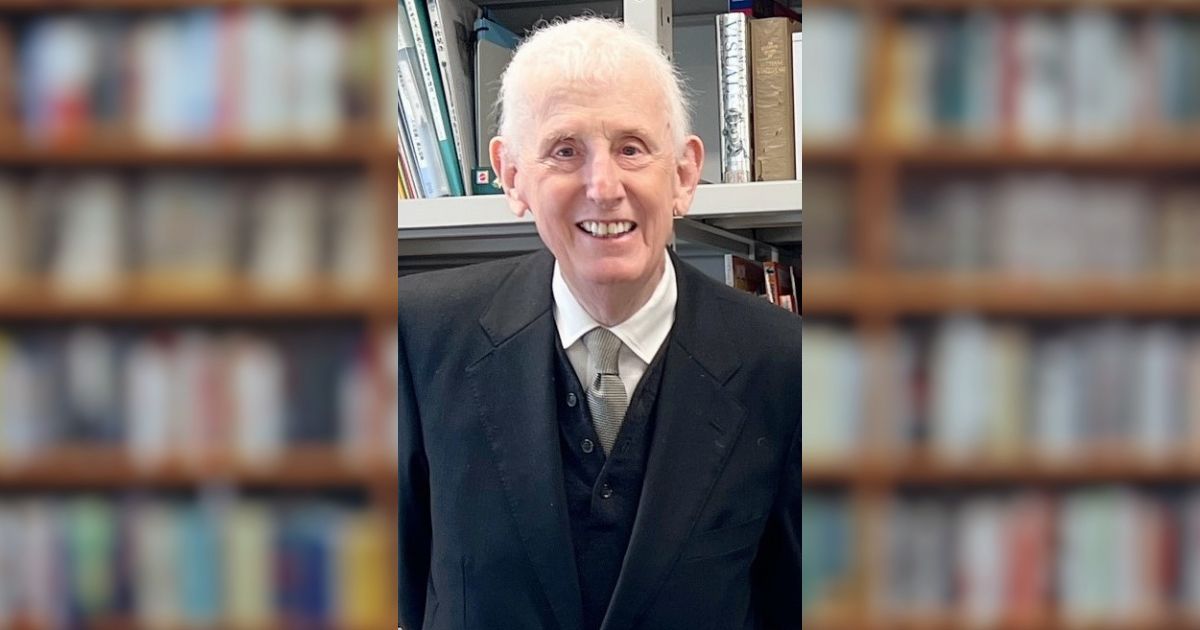Ian McMicking (Fr 1964) was born on a grazing property in Southern Queensland before his family relocated to NSW. He attended The Scots School in Bathurst and joined the Andrew’s community to complete a Bachelor of Arts. After graduating, Ian worked several different jobs, none of which satisfied him. Driven by the desire to find his passion and see more of the world, Ian took the opportunity to apply for a graduate teaching position in Japan – a decision that altered the course of his life forever. Ian has nearly 50 years of experience working across the country teaching English, being a guest professor, and supporting music programs. Upon his recent retirement, he was awarded the title of Professor Emeritus. In this Q&A style profile, he shares with us memories from his time at St Andrew’s and his journey to where he is today.
Please tell us a bit about yourself – where are you originally from and how did you come to be a resident at St Andrew’s College?
I am the second of two boys and the third child of four. I was born in the Dirranbandi district of Southern Queensland where my grandfather had established a grazing property. At a young age, my father joined a stock and station agency and our family relocated to Sydney. I followed my brother to The Scots School, Bathurst.
At Scots, the Chaplain, David Webster, was a Sydney University graduate who had attended St Andrew’s. Alan Dougan, the ‘Bird’ when I arrived at Andrew’s, had been Minister of the Bathurst, Presbyterian Church.
Additionally, a year before I entered university, my sister began her nursing training at Royal Prince Alfred Hospital, so I suppose she occasionally spoke about St Andrew’s. My family all thought it was a good idea.
What parts of College life were you involved in? Do you have a favourite memory you would like to share?
I was a member of the Rawson Athletics Team and played bridge for the College. I greatly remember performing the address to the Haggis at one of St Andrew’s Valedictory Dinners.
Did your time at St Andrew’s influence and or impact your life after College?
I left Australia shortly after graduating and soon began teaching university students. One aspect that persisted was the ‘fresher system’ as it existed during my time at College, and its varying impacts on individuals. It bound the first-year students together and enabled us to create meaningful friendships. However, when I started teaching, I was always aware of the need to watch out for mistreatment.
Even though I moved away from Australia, I remained in contact with several old college friends. I was always delighted when able to welcome them to Japan or meet up again on my occasional visits home.


Whilst teaching was not your first role after graduating, were there particular academic, professional, or personal experiences that motivated you to pursue a career in education?
Whilst teaching was not my first role, I had accepted a Teacher’s College Scholarship to attend university and did consider it. However, as other opportunities arose, I decided to pay off my bond and look for something more interesting – which led to the opportunity to come to Japan. Soon after I started teaching, I fell in love with the profession and have never regretted the move I made.
What did a typical day look like for you, working in a school but living in a bustling international city, all whilst supporting children and grandchildren?
The early months were filled with excitement, despite my limited knowledge of the country and inability to speak the language. However, once the novelty wore off I often thought of returning home. What stopped me was a stubborn determination not to be told, ‘We told you this would happen’. As the months became years, I started to learn the language, made friends, married, and had children, then life and work combined and became very enjoyable.
Is there a particular achievement or moment you are most proud of from your long career?
I cannot think of any particular moment, I think there were many. I was involved with an International Summer School for visiting professors, I accompanied the University Orchestra on a visit to Hungary and the wind ensemble to the United States. I ran the English Speaking Society, taught English to the Virtuoso Class (specially gifted students), and authored textbooks.
I was delighted to on retirement to be named an Emeritus Professor.
What do you like to do outside of your work?
In earlier times, I practiced the Japanese martial art of Kendo. I developed a liking for traditional wood-block prints, Ukiyo-e.
I still enjoy attending classical music concerts and visiting art galleries and museums. I am 79 now, and my life has slowed down, but I love travelling. I have crossed Siberia by train and visited much of Europe and many parts of Asia and the United States. I regret not seeing more of Australia when I had the chance.
You were determined from the moment you read the job advertisement, what motivated you to achieve your goal? Is there any advice you would give to young Androvians looking to study or work overseas?
I felt Australia was so far away from the rest of the world that travelling abroad as early as possible was necessary. I felt I had to do something that satisfied me, not the wishes of others.
If a chance is offered grab it, the world is an exciting place.

